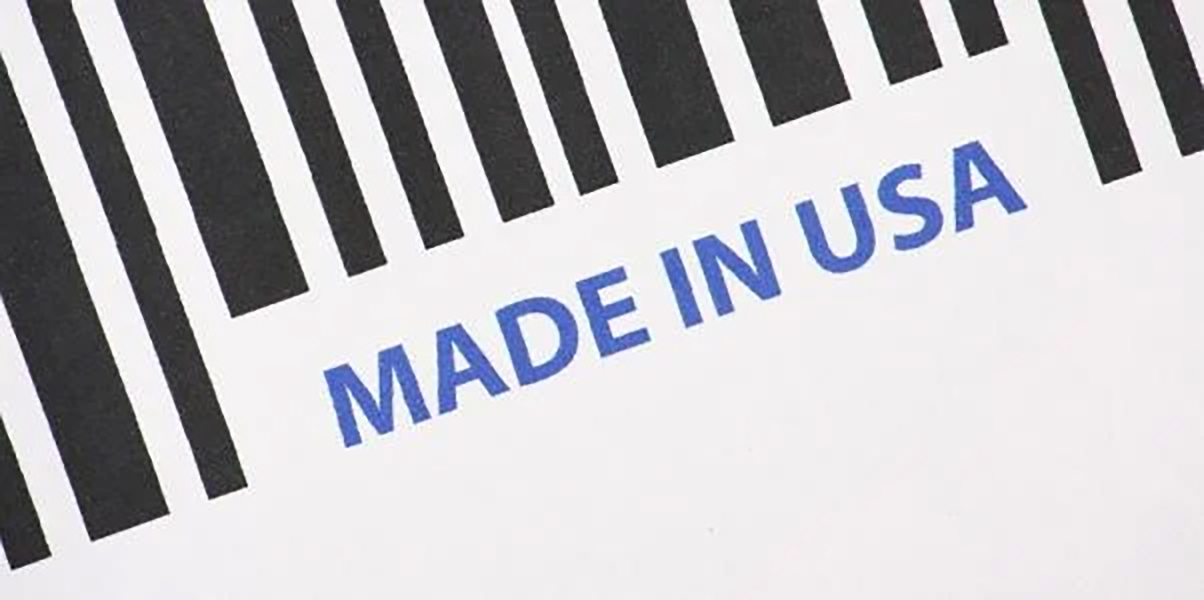Understanding The
Buy American Act & Its Impact on Defense Logistics

The Buy American Act (BAA) is a crucial piece of legislation that shapes procurement practices within the United States. Enacted in 1933, the BAA aims to promote domestic manufacturing and bolster the American economy by giving preference to domestically-produced goods in federal government procurement. In essence, the Act requires that a substantial portion of the products purchased by the federal government be of domestic origin.
According to the U.S. Government Accountability Office, two conditions must be present for the Buy American Act to apply: (1) the procurement must be intended for public use within the United States; and (2) the items to be procured or the materials from which they are manufactured must be present in the United States in sufficient and reasonably available commercial quantities of a satisfactory quality.
A key objective of the BAA is reducing the United States’ reliance on foreign goods to mitigate potential security risks. The rationale behind this legislation stems from the recognition that a heavy dependence on imported products could compromise national security, as it leaves the country vulnerable to disruptions in the global supply chain. The Act aims to address this concern by promoting the purchase of domestically-produced goods for government procurement. By fostering a stronger domestic industrial base, the U.S. aims to enhance its self-sufficiency and resilience in times of geopolitical uncertainties or economic disruptions, serving as a crucial tool in safeguarding the nation’s economic and security interests.
For the defense logistics industry, the implications of the Buy American Act are profound. The Act plays a pivotal role in shaping the supply chain landscape for defense contractors and suppliers, influencing sourcing decisions and impacting the overall efficiency of defense logistics.
This is where many government agencies, specifically those supporting our military, chose to partner with private logistics contractors—like VSS Logistics—for turnkey solutions to manage the procurement process from cradle to grave. Contractors skilled in Third-Party Logistics (3PL) and Industrial Product-Support Vendor (IPV) programs offer services that help maintain compliance and navigate the complexities and stringent criterion at all points during the procurement process. This often involves a meticulous assessment of the supply chain and identifying and mitigating potential risks of non-compliance.
The defense logistics industry faces the dual challenge of meeting stringent BAA requirements while maintaining cost-effectiveness. While the Act aims to prioritize domestic industries, it is essential to strike a balance that ensures competitive pricing without compromising national security. This delicate equilibrium requires defense contractors to continuously assess and optimize their supply chains, seeking efficient domestic sources while remaining globally competitive.
The Buy American Act serves as a cornerstone in shaping procurement practices within the defense logistics industry, and its impact resonates throughout the supply chain, influencing sourcing decisions and demanding meticulous compliance from defense contractors.
VSS Logistics
Company News
Primes Are Falling Short When it Comes to Subcontracting Goals — But Just How Short?
VSS Logistics Primes Are Falling Short When it Comes to...
Behind the Scenes: The Role of Logistics in Supporting Veterans’ Health
VSS Logistics Behind the Scenes: The Role of Logistics in...
The Hidden Heroes of the Summer Olympics: Logistics Companies
VSS Logistics The Hidden Heroes of the Summer Olympics:...
Navigating Complex Challenges: The Role of 3PL in Healthcare
VSS Logistics Navigating Complex Challenges: The Role of 3PL in...
Leveraging the Unique Value of Hiring Veterans
VSS Logistics Leveraging the Unique Value of Hiring VeteransIn...
Understanding Different Services
Decoding Public Sector Logistics Understanding Different...
BLUF
VSS Logistics BLUF Bottom line up front 5 ways to gain...
Why 3PL?
VSS Logistics Why 3PL? Exploring the Value of 3PL Maximizing...







